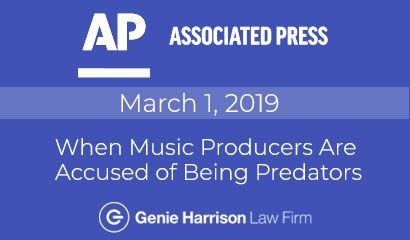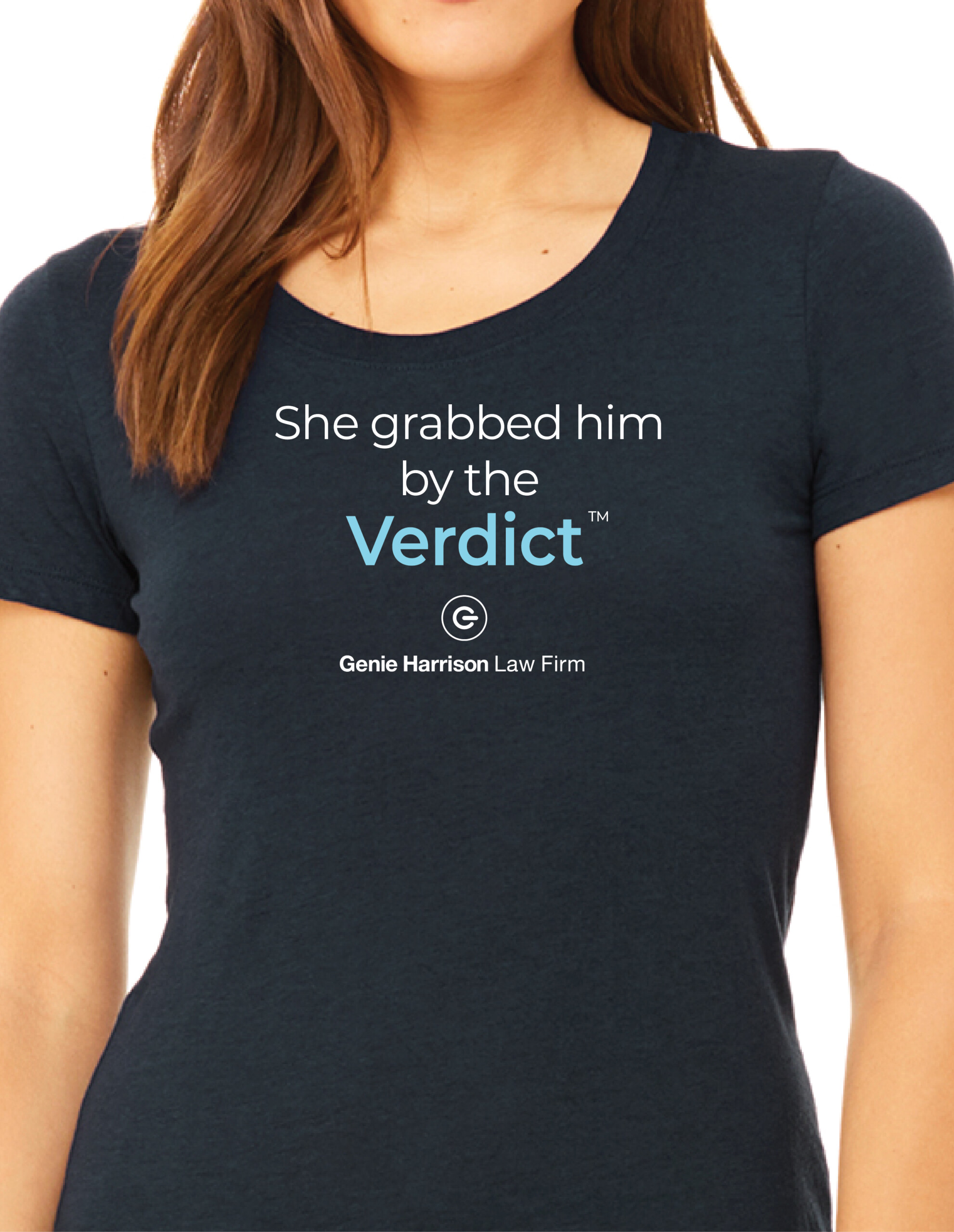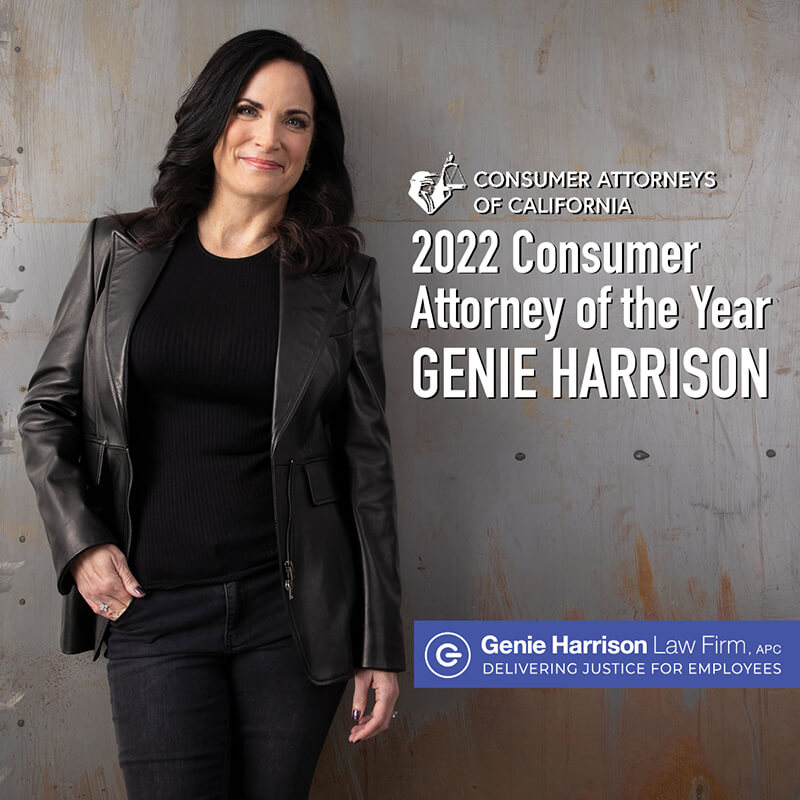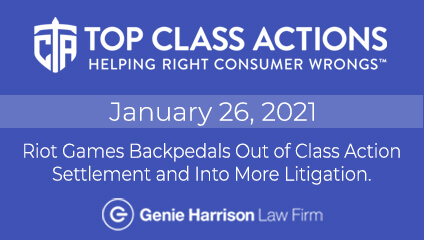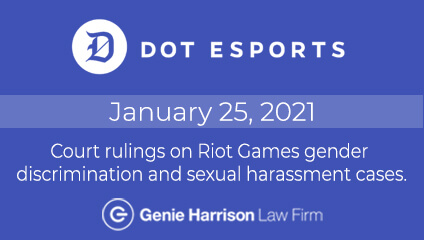When music producers are accused of being predators
March 1, 2019 — By Mesfin Fekadu for the Associated Press
NEW YORK (AP) — Jessie Woo just wanted to sing. So when the budding vocalist met a successful music producer who told her he wanted to help her with her music, she believed him.
Then, one night seven years ago, the producer raped her, she said.
It was not the only time she was preyed upon by male producers early in her career, said Woo, a cast member of VH1′s “Love & Hip Hop Miami” and host of several programs for BET Networks.
“With these producers, they’re putting you in rooms that you’ve dreamed of. You’re in the studio with artists like … Lil Wayne, you’re seeing T-Pain, you’re seeing Beyonce. You’re just seeing all these people stop by,” she said. “So, you’re like, ‘OK, this person is a little creepy, but I have to be here … I’m in the right place, I just got to maneuver around this person’s creepiness. I got to figure out how to dodge the bullet.’ And you’re dodging somebody who is set out to abuse you.”
Other women navigating the pop music industry have started to speak out about similar experiences, after the #MeToo movement has toppled powerful men in Hollywood, politics, business and more. As in those arenas, women can often find themselves being abused, sometimes sexually, by powerful men who hold the keys to success.
In 2017, Jessie Reyez, the singer who co-wrote the recent Calvin Harris hits “One Kiss” (with Dua Lipa) and “Promises” (with Sam Smith), released a powerful short film for her song “Gatekeeper.” In it, she described how she was harassed by a producer: “Oh I’m the gatekeeper/Spread your legs/Open up/You could be famous/If you come up anywhere else, I’ll erase you.”
Last year, she identified her tormentor as music producer Noel “Detail” Fisher, who won a Grammy for co-writing the Beyonce and Jay-Z hit “Drunk in Love.” Reyez said he had tried to belittle and demean her for not having sex with him, and for not having sex to advance her career.
Attempts to reach Fisher — who has also produced hits for Lil Wayne, Nicki Minaj, Wiz Khalifa and more — for comment about her allegation and others that followed were unsuccessful. Calls to phone numbers linked to him and to his relatives went unanswered.
Reyez’s accusations were echoed by others who painted Fisher as a serial abuser.
″#METOO No wonder why I connected with your song GateKeepers @jessiereyez,” singer Bebe Rexha, 29, wrote on Instagram in May 2018. “He tried the same thing with me. I was just 19. I ran out of the studio crying. Awful Human.”
Another singer, Tinashe, commented on Rexha’s post: “The only session I’ve been in to this day where I left due to being soooo uncomfortable. Glad he’s being exposed for the (expletive) creep he is. Disgusting.”
Janae Knox filed a lawsuit against Fisher in June 2018, claiming that after she was hired as his assistant, she experienced “severe and pervasive sexual harassment and sexual assault by Fisher,” according to court documents. The suit claims Fisher asked Knox to shower with him and demanded sexual favors while she performed her job.
“Detail is a sexual predator and it is troubling that I was one of his victims. I want to encourage other victims to come forward because by doing so, they will begin to heal,” Knox said in a statement to The Associated Press.
Isabella Mack, another Fisher assistant, filed a complaint against him when Knox did, claiming she was forcefully held against her will while he masturbated. The suit said Fisher also demanded she pose for nude pictures and videos, and that Mack suffered extreme emotional distress as a result.
“Detail has to be held accountable for his actions. I also hope that other music industry victims come forward because it is time to expose the system that enables men to abuse women in this business,” Mack said in a statement to the AP.
Another suit against Fisher was filed in December by aspiring musician and model Kristina Buch.
Fisher has yet to enter a legal response to either of the cases filed last year, and attempts to find a lawyer representing him were unsuccessful.
Attorney Genie Harrison, representing Knox and Mack, said her clients “chose to hold Detail accountable” and are letting “other victims know they are not alone.”
“Whether it’s in music, or film, or corporate America, the abuse of power to coerce sex must end. The brave #MeTooInMusic victims who come forward will help accomplish this goal,” Harrison continued in a statement.
Some such allegations were made long before the #MeToo movement, which started in the wake of reports of sexual misconduct by the Hollywood producer Harvey Weinstein. Lady Gaga, 32, said she was sexually assaulted by a music producer when she was 19 — before she released her debut album in 2008 and became a multiplatinum, Grammy- and Oscar-winning superstar.
“It’s something in my life that’s always really kind of defined me up until this point,” Gaga, told the AP in 2016.
For years, pop singer Kesha has been battling her former producer, Dr. Luke, in court after she claimed he drugged, sexually abused and psychologically tormented her — allegations that Dr. Luke, who has crafted hits for Katy Perry, Kelly Clarkson, Britney Spears and more, has denied. (Kesha voluntarily dismissed her case in 2016; Dr. Luke’s defamation case against her is ongoing).
And of course, R. Kelly — a multiplatinum R&B superstar who also has created smashes for Michael Jackson, Celine Dion, Maxwell and many more — has pleaded innocent to charges with aggravated sexual abuse involving four victims, including at least three between the ages of 13 and 17.
For Kelly, the charges are just the latest in a long line of accusations against him; he was accused of child pornography for allegedly having sex with a preteen but was acquitted in 2008. He also secretly married his then protege, the late R&B superstar Aaliyah, when she was just 15; the marriage was later annulled. Kelly has been accused of luring women with promises of helping their music careers, then abusing them; some women have accused him of keeping them as virtual slaves. He has denied all allegations abuse, and his lawyer called him an “innocent man.”
Others continue to come forward with new allegations against powerful men in the industry. Last month, in a New York Times report, several women claimed Ryan Adams — the critically acclaimed, Grammy-nominated singer-songwriter who also worked as a producer for Willie Nelson, Jenny Lewis and more — offered to help them with their music careers but then turned things sexual, and he sometimes became emotional and verbally abusive.
In response, Adams acknowledged he was not “a perfect man” and had made mistakes but called the report inaccurate and said it contained exaggerated stories and falsehoods.
Following the report, more female musicians opened up about bad experiences with the rocker, including Nashville-based singer-songwriter Ruby Amanfu, who said she was emotionally abused by Adams in a lengthy Facebook post.
“I don’t feel lucky when I see the long term effects that this abuse has had on my life, my career, my ability to trust…and to heal. There’s an album that will never see the light of day that we tracked 3 years ago (to the day/week, in fact) with some of the most beautiful, honorable, talented souls on earth. I endured a lot and have nothing to show for it. I have carried shame for the past 3 years as people have inquired, ‘Whatever happened to that album you made with Ryan Adams?’, unable to share the truth that I was made to be the pawn in some sick game that I never signed up to play,” she wrote. “I am here to condemn a behavior that does not get to be swept under the rug. I will no longer talk myself out of the anger that I feel.”
“I will no longer be a Prisoner,” she said.
Jessie Woo said she went public with her story because others have complained about the man who assaulted her; the AP typically does not release the names of alleged sexual abuse victims, but Woo has agreed to shed her anonymity. She, however, has not named her assailant.
“That’s something I’m struggling with. Even without saying their name, I’ve gotten so much backlash,” Woo said.
“It was just crazy to me that I would get all these questions condemning me instead of the one question, ‘Why was she raped? Why are men raping these women in the industry? Why does this happen?’ That’s the question.”
From the Associated Press AP NEWS >


